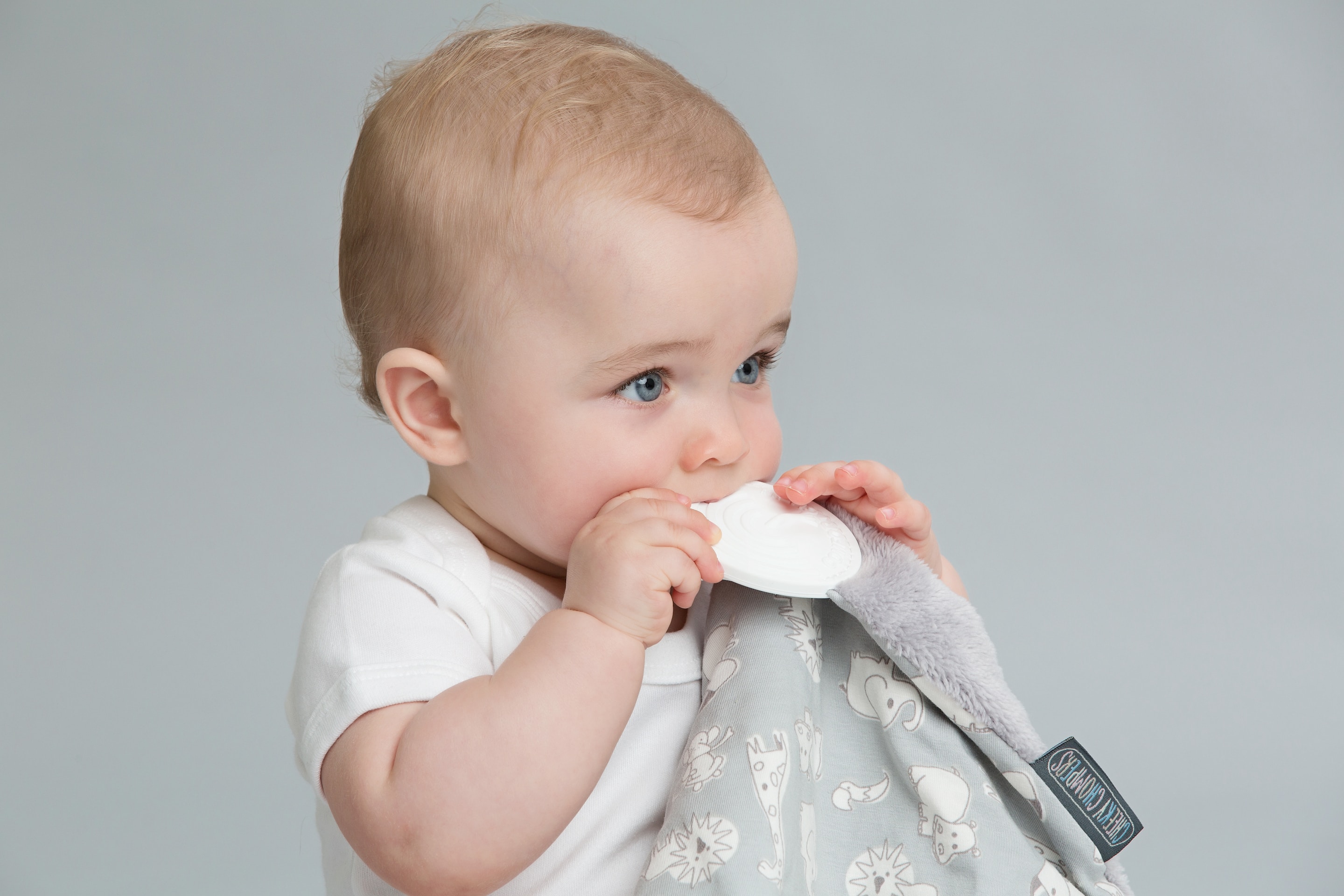Teething 101

What is teething?
Have you heard about the “teething stage” from friends or family? Are you wondering if your baby is teething? Teething is a term that people use a lot to explain why a baby may be crying more, sleeping less, or drooling, so here is what you should know about teething! Teething is the period of time when babies’ teeth are growing. It begins when their teeth start to move closer to the gumline and eventually poke through. Even though you may not see teeth poking through, the process may be starting, so you want to be aware of the signs, potential symptoms, and relief strategies to keep your baby as comfortable as possible.
When does teething happen?
Children have a total of twenty (20) baby teeth that will grow during their first few years of life. Teething will generally last until all 20 have come in, however the symptoms may not be the same for all 20 teeth or at each stage of their development. Teething usually starts when a baby is around 4-7 months old and can last until age 3. It is important to know that babies’ teeth grow at their own pace and on their own time. Don’t worry if they start teething earlier or later than expected, but if you do have a concern it is always good to talk with your baby’s pediatrician or dentist! Fun fact: some babies are born with teeth!
Teething Timeline
During these months you can expect these teeth to come in…When your baby is 6-10 months old the front, bottom two teeth will come in, followed by the front, top two teeth around 8-13 months old. Between 10-16 months old your baby may grow two more bottom teeth and their first molars will cut through. Most children have all of their teeth by age 3.
Signs of teething
- Fussiness and increased crying
- Swollen or sensitive gums
- Cold-like symptoms including slight fever or cough
- Chewing and gnawing on objects and their hands
- Drool, lots of drool
- Rubbing their cheek or pulling on their ear
- Sleeping more or less than usual
- Discomfort and even refusal while feeding
It is important that you are aware of warning signs that may occur during teething. If your baby experiences diarrhea, vomiting, rash, high fever, coughing and congestion that lasts, bleeding or pus on the gums, or face swelling you should contact a doctor to be sure that their teeth are growing in properly and that nothing else more serious is happening.
Teething relief (Tips and Tricks)
Teething can be uncomfortable for babies, so helping to ease the discomfort is great for you and for the baby.
- Cold soothing is a great technique and can include offering the baby a cold pacifier or spoon, a clean, wet towel, or a refrigerated teething toy. Please note that freezing baby toys may be too cold and uncomfortable for babies, and liquid toys can get holes and the fluid can leak out, so these are not recommended.
- Amber teething necklaces, while not medically proven, may release pain reliever and soothe babies.
- Next up are snacks! Snacks make everything better, but for teething babies it is great to offer hard teething crackers.
- Small amounts of cool water are safe to offer babies who are 6-9 months and older.
- Over the counter relief such as drops, gels, or acetaminophen may be effective in relieving pain for babies. Most stores carry medicines that you can gently rub on baby’s gums and temporarily soothe their mouths. Please note that teething medicines that have benzocaine in them are not safe for children under 2 years old. Please talk with your doctor when choosing pain relief products to make sure that you are making the best and safest choices for your baby!
- Other teething relief methods include gently massaging the baby’s gums and even allowing the baby to gnaw on your clean finger, breastfeeding on demand to help to soothe baby and lots and lots of snuggles!
Most importantly do not get discouraged! Teething affects every baby differently and even if some soothing techniques work for some babies it doesn’t mean that it’ll work for every baby every time. Remember that this is only a phase and it will pass!
Check out Health and Hygiene and learn how to care for your baby’s new teeth!